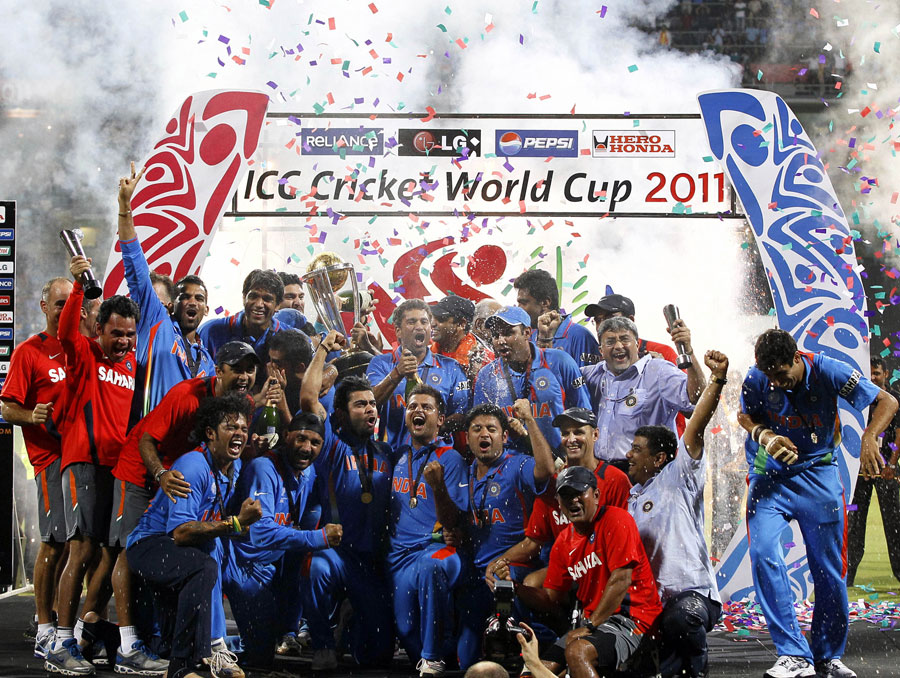Books related to cricket, and the people involved in it, are unfortunately usually boring. I have read autobiographies of many famous cricket stars, but haven’t really found them engaging. You tend to start the book with much enthusiasm and then feel like it is letting you down by the time you get to the middle, and then you labor through to get to the end of it, if at all.
Those are a few reasons why I found, Sanjay Manjrekar’s autobiography, Imperfect, different. Sanjay Manjrekar, once a cricket star who was destined to make a mark in the world of cricket, now an accomplished commentator and analyst, has been a bit of an enigma for me. Sanjay came into the cricket scene before we knew that the greatness in Sachin Tendulkar will eclipse all other cricket topics in India. The era after Sachin’s appearance is all about Sachin, but Sanjay was someone who had the mantle before him. As far as I can remember, he was the one who was supposed to be the next “star” of Indian cricket. Everyone wanted him to succeed, he supposedly had one of the best batting techniques of his time, and he came into the team just at the right time, a time when India needed stars.
His autobiography is almost like an explanation of why all of this did not happen. It is a must-read for anyone who wants to understand why he did not achieve the success, everyone else thought he should have. I had so much fun reading the book, that I ended up finishing it in 2 days. That’d be the fastest I have read average length books, but it goes to show that the I related to it more than I do with some other books of the same genre. Anyone who grew up in the nineties, and watched India get battered all around the world, with inconsistent performances, illogical plays, and just the lack of intent overall, would enjoy the book because it gives you a sneak peek into why some of that may have happened.
The book can be divided into 3 distinct parts, each of them telling a different story about Sanjay’s relationship with the game.
The preparation years: They say that some people are born great, some have greatness thrust upon them, and some cannot manage greatness because they do not understand the real motivation behind it. Sanjay explains why he got involved in cricket, his real motivations behind playing the sport, his strange and strained relationship with his father and everything else that was part of making him a great ‘average’ batsman. His honest take on why he never felt passionate about scoring runs like Sachin did, but always looked for greatness in technique is a lovely yet uncomfortable glimpse into the mind of a troubled cricketer, whose motivation to play was never the love of the sport itself. I enjoyed the fact that he is blatantly open about the demons in his mind, that led to the way he played the game.
The cricketing years: Some of the most interesting incidents of Indian cricket have been highlighted in his narrative of his own cricketing years representing Mumbai, and India. The “Mumbai” school of cricket, which is not that dominant in Indian cricket now, has been passionately spoken of, and reading it you realize why Mumbai kept on producing brilliant cricketers for India for so many years. It was not only the quality of the individual but also of the system in place coupled with seniors and coaches who wanted success for those involved. It was an absolute revelation to read about all this. Sanjay’s description of why playing for Mumbai was tangentially different from playing for India, the cultural differences of players from different zones, and the senior-junior differentiation in the dressing rooms, is a perfect explanation for why the team played poorly in that era, and only sometimes showed the glimpse of brilliance, that too because of individuals. Reading his narrative made me feel that it was not really a team rooting for each other, but a bunch of talented cricketers who wanted to perform well individually. In a team sport it never works out that way, and the results India had in that era proves this.
The broadcasting years: Perhaps the most interesting and insightful part of the book is Sanjay’s transition from a novice commentator to a well-respected cricket analyst and lead broadcaster. It is not only Sanjay’s individual journey that makes for an interesting read but also his in-depth explanation of the nuances of television broadcasting, the anecdotal stories of his engagement with fellow commentators like Tony Greig, Imran Khan, Ian Chappel and of course Navjot Singh Sidhu, that makes the reader feel immersed. As someone who had no clue on how the cricket broadcasting works, how the pre and post-match shows are so perfectly executed, and how does everyone sitting in those rooms sound so intelligent, the book is a sort of guide into that world. It is fascinating to read about just this part, and I would think it can be made into a book by itself.
Like I said, as someone who grew up in years where explaining why India is such a poor, disintegrated team was difficult, this book offers some of those answers. Also, for someone who wants to understand why Sanjay Manjrekar never achieved greatness, I believe the author has opened up their soul and provided the answers. Anyone with similar interests will definitely enjoy reading this book.
